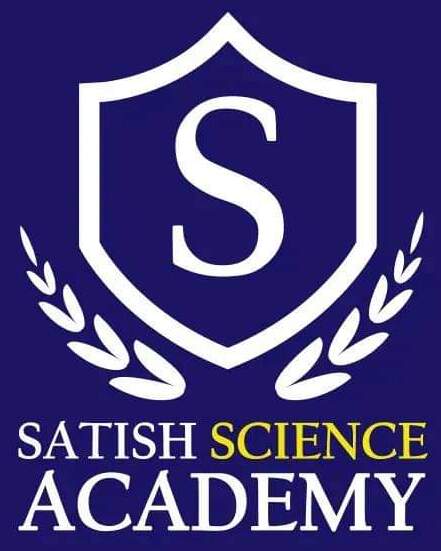BIEAP: Complete Guide to the Board of Intermediate Education, Andhra Pradesh
What is BIEAP?
The Board of Intermediate Education, Andhra Pradesh (BIEAP) is the official state-level authority responsible for overseeing intermediate education in Andhra Pradesh. Established in 1971, BIEAP manages academic planning, syllabus design, examination conduct, and certification for students in 1st year (Class 11) and 2nd year (Class 12). By standardizing intermediate education, the board ensures that lakhs of students across government, private, and aided junior colleges receive a consistent and high-quality educational experience.
BIEAP operates under the guidance of the Andhra Pradesh government, and its functions extend beyond academics. It plays a crucial role in policy-making, training teachers, affiliating institutions, and adapting educational standards to meet evolving national policies like the National Education Policy (NEP) 2020.
Importance of BIEAP for students in Andhra Pradesh
For students in Andhra Pradesh, BIEAP is more than just an examination body—it is a vital part of their academic journey. Completing intermediate education under BIEAP is a necessary step toward pursuing higher education, whether in engineering, medicine, commerce, arts, or professional courses.
Key reasons why BIEAP is significant for students:
- Foundation for higher studies: Scores in BIEAP 1st and 2nd year exams determine eligibility for college admissions and competitive exams like EAMCET, JEE, NEET, and more.
- Standardized learning: The board’s syllabus and evaluation methods create uniformity, ensuring that students from all backgrounds get the same academic exposure.
- Recognized certification: The marks memos and certificates issued by BIEAP are widely accepted by universities and employers across India.
- Guidance and updates: Through circulars and updates, BIEAP informs students and colleges about syllabus revisions, exam schedules, and important policy changes.
Overall, BIEAP not only assesses academic performance but also shapes students’ readiness for professional careers and further education.

Overview of services: exams, results, syllabus, hall tickets, and more
BIEAP provides a comprehensive set of academic services to support students, parents, and educational institutions across Andhra Pradesh:
- Examinations: Conducts the Intermediate Public Examinations (IPE) for 1st and 2nd year students, supplementary exams, and revaluation processes.
- Results: Publishes results on the official website, allowing students to view and download marks memos and grade sheets.
- Syllabus and curriculum: Designs, updates, and publishes the official syllabus and model question papers for different streams like MPC, BiPC, CEC, MEC, HEC, etc.
- Hall tickets: Issues digital and physical hall tickets required for entry into examination halls.
- Affiliation and regulation: Grants affiliation to junior colleges and monitors their compliance with academic and infrastructure standards.
- Digital services: Provides online portals for downloading certificates, syllabus PDFs, hall tickets, time tables, and accessing exam-related notifications.
- Revaluation and recounting: Allows students to request revaluation or recounting if they believe there is an error in their marks.
- Support and circulars: Shares regular updates and guidelines to keep students and institutions informed about exam dates, new policies, and academic best practices.
These services collectively make BIEAP an essential academic authority that guides and supports students through one of the most critical stages of their educational journey.
About BIEAP
Full form and history
The Board of Intermediate Education, Andhra Pradesh (BIEAP), founded in 1971, was set up to reform and standardize intermediate education across the state. Its creation aimed to modernize the system, ensure consistent academic quality, and provide a strong foundation for students preparing for higher studies and professional courses. Before its establishment, intermediate education was managed by universities or other local boards, which often led to inconsistencies in academic standards.
Recognizing the importance of a centralized authority, the Government of Andhra Pradesh formed BIEAP to:
- Standardize the curriculum across all junior colleges
- Conduct uniform public examinations
- Regulate and monitor affiliated colleges
- Prepare students better for higher education and professional careers
Since its inception, BIEAP has adapted to educational reforms and national policies, such as the National Education Policy (NEP) 2020, ensuring that intermediate education in Andhra Pradesh remains modern, competitive, and relevant.

Objectives and role in intermediate education
The Board of Intermediate Education, Andhra Pradesh plays a critical role in shaping the educational landscape of the state. Its main objectives and responsibilities include:
- Designing and updating curriculum: BIEAP develops the official syllabus for both 1st year and 2nd year intermediate courses across streams like MPC, BiPC, MEC, CEC, and HEC.
- Conducting examinations: Organizes fair and transparent public examinations, including regular, supplementary, and vocational exams.
- Certifying academic achievement: Issues recognized certificates and marks memos that help students pursue higher studies and career opportunities.
- Regulating institutions: Grants affiliation to government, private, and aided junior colleges, and ensures they comply with academic and infrastructural standards.
- Teacher training and development: Supports teacher capacity-building to improve teaching quality.
- Student support: Provides resources like model question papers, updated syllabi, exam guidelines, and online services.
- Promoting equity: Strives to ensure that students from urban and rural backgrounds receive the same quality of education and assessment.
Through these initiatives, BIEAP not only maintains academic standards but also prepares students for competitive exams and lifelong learning.
Affiliated institutions and reach across Andhra Pradesh
BIEAP’s network includes thousands of government, private, and aided junior colleges spread across all districts of Andhra Pradesh, from major urban centers like Vijayawada, Visakhapatnam, and Guntur to smaller towns and rural areas.
This widespread affiliation ensures:
- Consistency in academic delivery, as all institutions follow the same syllabus and guidelines
- Expanding opportunities for intermediate education to students across both urban and rural areas, without geographical limitations.
- Uniform evaluation standards, so every student competes on an equal platform
Today, BIEAP oversees the education of lakhs of students every year, reflecting its vast influence on the academic and professional future of Andhra Pradesh’s youth.
3️⃣ BIEAP Syllabus & Curriculum
Overview of Intermediate 1st Year & 2nd Year syllabus
The BIEAP syllabus is structured to cover two crucial years of study:
- 1st Year (Class 11): Acts as the base, introducing students to advanced topics beyond secondary education. Subjects focus on building conceptual clarity and analytical skills.
- 2nd Year (Class 12): Deepens understanding, includes more complex topics, and aligns preparation for board exams and competitive tests like EAMCET, JEE, NEET, and CA Foundation.
Subjects generally include:
- Two language papers (usually English and Telugu or Hindi)
- Three core or elective subjects based on the chosen stream
- Practical exams for science subjects and some vocational streams
This design ensures students graduate with both specialized knowledge and essential language skills.

Streams offered: MPC, BiPC, CEC, MEC, HEC, etc.
BIEAP provides multiple streams so students can align their education with career aspirations:
- MPC (Mathematics, Physics, Chemistry): Popular among students targeting engineering, architecture, or physical sciences.
- BiPC (Biology, Physics, Chemistry): Ideal for those aiming for medicine, biotechnology, agriculture, or allied health sciences.
- CEC (Civics, Economics, Commerce): Suitable for business, law, public administration, and commerce-related degrees.
- MEC (Mathematics, Economics, Commerce): Combines maths with commerce, offering flexibility for careers in finance, banking, data analysis, and management.
- HEC (History, Economics, Civics): Focused on humanities, useful for civil services, teaching, journalism, and social sciences.
By choosing a stream, students tailor their intermediate education to match academic interests and professional goals.
Updates and changes in syllabus (recent years)
BIEAP frequently updates its syllabus to:
- Include contemporary topics that reflect technological and industry changes
- Align better with entrance exams and national education standards
- Reduce outdated topics and add skill-based modules
- Adapt to the National Education Policy (NEP) 2020, encouraging holistic and application-driven learning
Recent updates have also emphasized digital learning, introducing online resources, e-books, and model question papers to help students prepare more effectively.
Where to download the official syllabus PDF
Students, teachers, and parents can easily download the latest BIEAP syllabus PDFs directly from the official website:
https://bieap.apcfss.in/
Steps:
- Visit the website.
- Navigate to the “Syllabus” or “Student Services” section.
- Choose your stream and year (1st or 2nd year).
- Download the syllabus PDF for each subject.
This ensures everyone is referring to the most current, officially approved syllabus.
4️⃣ BIEAP Time Table
Importance of exam time table for students
The time table acts as a roadmap, letting students know:
- Exact dates and timings of each exam
- Sequence of subjects
- Gaps between papers to plan revision
A clear time table helps reduce anxiety and supports systematic study planning.
How BIEAP releases the schedule
BIEAP usually releases the exam time table:
- Several months before the annual exams (usually in December–January for March exams)
- Via the official website and press releases
- For regular, vocational, and supplementary exams separately
This early announcement helps students and colleges prepare effectively.
Steps to download the latest BIEAP time table
- Go to https://bieap.apcfss.in/
- Look for the “Notifications” or “Time Table” section.
- Find the relevant link for your year and stream (General/Vocational).
- Click to view and download the PDF.
- Save or print a copy for quick reference.
Tips to plan study based on the time table
- Identify subjects with less gap and start revising them early.
- Create a revision calendar covering all topics before exams begin.
- Use weekends to revise subjects scheduled earlier in the time table.
- Allocate extra time for difficult subjects and practical exams.
Following a personalized plan based on the time table improves confidence and performance.
5️⃣ BIEAP Hall Tickets
What is a hall ticket and why it is important
A hall ticket (also called an admit card) is an official document issued by BIEAP. It:
- Confirms your eligibility to appear in exams
- Contains critical details: student name, exam center, date, subjects, and roll number
- Is mandatory to enter the examination hall
Without it, students are generally not allowed to write exams.
Step-by-step guide to download BIEAP hall ticket online
- Visit the official website: https://bieap.apcfss.in/
- Click on the “Download Hall Ticket” link.
- Select the category (General/Vocational, 1st year/2nd year).
- Enter required details (e.g., roll number, date of birth, or college code).
- Click “Submit” to view and download.
- Print the hall ticket and keep multiple copies.
What to check on your hall ticket: details & errors
After downloading:
- Verify your name, photograph, and signature
- Check exam center name and address
- Confirm subject codes and exam dates
- Look for spelling errors or missing details
If there’s a mistake, contact your college or BIEAP immediately to correct it.
Instructions for exam day
- Bring your hall ticket along with an approved photo identification document (if needed).
- Arrive at the examination venue no later than 30 minutes before the scheduled start time.
- Avoid carrying prohibited items (mobile phones, smartwatches, notes)
- Follow the seating plan and invigilators’ instructions
- Keep a calm mindset and focus on your paper
A valid hall ticket ensures hassle-free entry and helps avoid last-minute stress.
6️⃣ BIEAP Results
When are BIEAP results declared?
The Andhra Pradesh Board of Intermediate Education (BIEAP) typically announces the results for:
- 1st Year Intermediate: around April–May
- 2nd Year Intermediate: also around April–May
For supplementary exams, results are typically released in July–August. The board announces exact dates through official press releases and updates on the BIEAP website.
How to check your BIEAP Inter 1st year & 2nd year results online
Checking your result online is quick and simple:
- Visit the official website: https://bieap.apcfss.in/ or the results portal announced by BIEAP.
- Look for the link “Intermediate 1st year/2nd year Results.”
- Provide your hall ticket number along with any other requested information.
- Click “Submit” to view your result.
- Download and save/print your marks memo for future reference.
Students can also receive results via SMS if BIEAP provides this facility in a given year.
Grading system and what your result means
BIEAP uses a grading system based on marks obtained:
| Percentage | Grade | Remarks |
|---|---|---|
| 91–100% | A1 | Excellent |
| 81–90% | A2 | Very Good |
| 71–80% | B1 | Good |
| 61–70% | B2 | Above Average |
| 51–60% | C1 | Average |
| 41–50% | C2 | Satisfactory |
| 35–40% | D | Pass |
| Below 35% | F | Fail |
A pass requires at least 35% marks in each subject. Grades help students and colleges quickly assess academic performance.
Steps if there’s an issue: revaluation, recounting, and supplementary exams
If a student feels their marks are incorrect:
- Revaluation: Apply for a detailed rechecking of answer scripts.
- Recounting: Only the marks are recalculated to check for totaling errors.
- Supplementary exams: For students who couldn’t clear one or more subjects; these are usually held in June–July.
Applications for these are made through your college or the official BIEAP portal, usually within a few days after results are announced.
7️⃣ BIEAP Model Papers & Previous Papers
Importance of practicing with model papers
Model papers and previous years’ question papers:
- Help students understand the structure of the exam and the kinds of questions they can expect.
- Help identify frequently repeated topics.
- Improve time management during the actual exam.
- Boost confidence and reduce anxiety.
By practicing these papers, students simulate the exam environment, making them better prepared.
Where to find official BIEAP sample papers
Official BIEAP sample papers are available:
- On the BIEAP website: https://bieap.apcfss.in/
- In printed guides published by BIEAP-recognized publishers
- Through colleges, which often distribute last year’s question papers and model papers
Always ensure you’re using the latest papers, especially if there have been syllabus updates.
Tips for effective practice using past papers
- Time yourself: Try to complete each paper within the official exam duration.
- Analyze mistakes: Review incorrect answers and revise those topics.
- Mix subjects: Practice papers from different subjects in rotation to build focus.
- Start early: Begin several months before exams, not just in the last week.
- Use marking schemes: Understand how marks are awarded, especially for theory and practical sections.
This methodical approach makes practice more useful than simply solving papers without review.
8️⃣ Admission & Registration Process
Who can register for BIEAP exams
- Students who have passed Class 10 (SSC) or an equivalent examination from a recognized board.
- Students who enroll in affiliated government, private, or aided junior colleges in Andhra Pradesh.
- Both regular and private candidates, including vocational course students.
Key dates and process for registration
- Admissions generally open soon after SSC results (May–June).
- Help students understand the structure of the exam and the kinds of questions they can expect.
- The board sets deadlines for:
- Fresh registration
- Late registration (with late fees)
- Correction of student details
The Intermediate Public Examination (IPE) fee payment and registration are also handled through colleges.
Documents required for admission to intermediate courses
Typical documents include:
- SSC (Class 10) pass certificate / marks memo
- Transfer Certificate (TC) from the previous school
- Date of Birth certificate (if not on marks memo)
- Caste certificate (if applicable)
- Recent passport-size photographs
- Aadhaar card copy (for ID verification)
Colleges may request additional documents based on their internal process.
9️⃣ BIEAP Official Website & Online Services
Official website link: https://bieap.apcfss.in/
The official website of the Board of Intermediate Education, Andhra Pradesh (BIEAP) is:
???? https://bieap.apcfss.in/
This is the central online platform where students, parents, and colleges can access all important updates, documents, and services related to intermediate education.
Online services offered: student login, results, certificates
Through the BIEAP website, students can use several helpful online services, including:
- Results: Access to 1st year and 2nd year intermediate public examination results.
- Hall tickets: Download admit cards before exams.
- Certificates: Apply for duplicate marks memos, migration certificates, and other official documents.
- Syllabus & model papers: Download the latest PDFs to prepare effectively.
- Notifications: Get updates on exam schedules, syllabus changes, revaluation dates, and more.
- Student services: Dedicated sections for supplementary exams, recounting, and revaluation.
These online services help reduce paperwork and make the process faster and transparent.
How to navigate the website for quick access
To use the website efficiently:
- Visit https://bieap.apcfss.in/
- Use the top menu or homepage icons to access key areas like Results, Hall Tickets, Notifications, and Downloads.
- Check the Notifications/Press Releases section for the latest updates.
- Download documents by clicking on the relevant links, usually available as PDFs.
- Use your hall ticket number, date of birth, or other details where required to log in or access results.
The website is designed to be user-friendly, even for those accessing it for the first time.
1️⃣0️⃣ Digital Learning & BIEAP
BIEAP’s digital initiatives
To modernize education and adapt to new learning trends, BIEAP has introduced several digital initiatives, such as:
- Providing model question papers and syllabus PDFs online.
- Using digital communication (emails, circulars, website updates) to reach colleges and students quickly.
- Moving many services (like exam registration and certificates) online to reduce delays and paperwork.
Online resources and e-learning for students
Students can benefit from:
- Downloadable study materials, sample papers, and blueprints from the BIEAP website.
- Digital libraries and e-content provided by some affiliated institutions.
- Online video lectures and practice tests shared by colleges to support hybrid learning.
These resources help students learn anytime, anywhere, especially helpful in rural areas or during disruptions like the pandemic.
Use of digital certificates and online verification
BIEAP has started offering:
- Online verification of marks memos and certificates, allowing colleges and employers to confirm authenticity quickly.
- Digital copies of documents to reduce dependence on physical papers.
- Support for faster issue of duplicate certificates through the online application process.
This move towards digital certificates increases security, saves time, and makes it easier for students to apply to universities or jobs.
1️⃣1️⃣ Importance of BIEAP for Higher Education & Career
Role in entrance exams (EAMCET, JEE, NEET, etc.)
BIEAP’s syllabus and exams play a direct role in preparing students for major entrance exams such as:
- AP EAMCET: For engineering, agriculture, and pharmacy courses.
- JEE (Joint Entrance Examination): For national-level engineering colleges.
- NEET (National Eligibility cum Entrance Test): For medical and dental admissions.
The intermediate curriculum aligns closely with the topics covered in these competitive exams, giving students a strong academic foundation.
How BIEAP grades affect college admissions
Marks obtained in the BIEAP 1st year and 2nd year exams:
- Are critical for admission into professional courses, degree colleges, and universities in Andhra Pradesh and beyond.
- May be used as eligibility criteria for scholarships, government benefits, or seat allotment under certain quotas.
- Help students build academic profiles for applications to private universities and institutions outside the state.
High grades open doors to better colleges and courses.
Career options after BIEAP intermediate
Depending on their chosen stream and interests, students can explore diverse career paths after intermediate:
- Engineering and technology (for MPC students)
- Medical, dental, pharmacy, and allied health sciences (for BiPC students)
- Commerce, banking, and finance (for MEC/CEC students)
- Law, humanities, civil services, teaching, journalism (for HEC and CEC students)
- Vocational courses and diploma programs for skill-based careers
Many students also pursue professional courses like CA, CS, CMA, or entrance exams for government jobs.
The intermediate certificate from BIEAP is thus a stepping stone to higher education and career success.
Role of Satish Science Academy in AP Board Preparation
Satish Science Academy (SSA) has built a strong reputation among students preparing for the Andhra Pradesh Intermediate Board exams. With years of expertise in guiding MPC, BiPC, MEC, and CEC stream students, SSA combines structured teaching, modern learning tools, and mentorship to help students build clear concepts and exam confidence.
Distinctive Advantages of Studying at Satish Science Academy for AP Intermediate Students
Board-Focused Syllabus Coverage:
SSA’s courses follow the AP Board (BIEAP) syllabus in detail, ensuring students cover every topic as per the latest curriculum. This systematic approach helps students stay organized and prevents last-minute gaps.
Expert Faculty and Subject Specialists:
SSA’s teaching team includes experienced educators who specialize in core subjects like Physics, Chemistry, Mathematics, and Biology. Their practical teaching methods simplify difficult concepts, making learning more engaging.
Regular Tests and Board-Pattern Mock Exams:
The academy conducts unit tests, pre-finals, and model exams designed on the AP Board pattern. This helps students practice real exam scenarios and build better time management skills.
Detailed Performance Analysis:
After each test, students receive a personalized report highlighting strong areas and topics that need more work. This data-driven feedback helps students revise more effectively.
Doubt Clearing and Mentoring:
Regular doubt-clearing sessions and one-to-one mentoring ensure students feel confident asking questions.
Comprehensive Study Materials:
SSA provides curated notes, previous years’ papers, topic-wise question banks, and predicted important questions, so students can prepare without searching elsewhere.
Integrated Competitive Exam Preparation:
While focusing on AP Board exams, SSA also prepares students for competitive exams like AP EAMCET, JEE, and NEET, saving students from managing separate coaching.
Digital Learning Support:
Beyond classroom teaching, SSA offers online study materials, recorded video lectures, and digital mock tests, so students can revise anytime.
Unique Selling Points (USPs) of Satish Science Academy
Board and Competitive Focus: Students receive preparation for both board exams and entrance exams under one program.
Customized Learning Paths: Separate batches for different learning levels (average, advanced, fast-track) help meet each student’s needs.
Proven Results: SSA students consistently score high in AP Board exams and secure admissions into professional courses.
Hybrid Learning Model: Combines classroom teaching with online resources to ensure continuous study support.
Holistic Student Development: SSA’s approach encourages analytical thinking, self-discipline, and better exam strategy, preparing students beyond textbooks.
1️⃣2️⃣ Conclusion
The Board of Intermediate Education, Andhra Pradesh (BIEAP) plays a vital role in shaping the academic and professional journey of lakhs of students across the state. From designing and updating the syllabus to conducting transparent examinations and issuing recognized certificates, BIEAP ensures students are well-prepared for higher education and competitive exams like EAMCET, JEE, NEET, and more.
For every student in Andhra Pradesh, staying informed through the official website https://bieap.apcfss.in/ is essential. Regularly checking updates helps avoid last-minute surprises and keeps you aware of exam dates, syllabus changes, hall ticket downloads, and other important announcements.
With proper planning, use of model papers, and attention to updates, students can make the most of the opportunities BIEAP offers and build a strong foundation for college admissions and future careers.
1️⃣3️⃣ FAQs about Andhra Pradesh Intermediate Board
What is the full form of the Andhra Pradesh Intermediate Board?
The complete name is Board of Intermediate Education, Andhra Pradesh, often referred to as the AP Intermediate Board for short.
How can I download my intermediate hall ticket online?
Visit the official website https://bieap.apcfss.in/, navigate to the “Hall Ticket” section, enter your roll number or details, and download the admit card.
When does the Andhra Pradesh Intermediate Board typically release the results for 1st and 2nd year students?
The board typically announces results in April or May each year. Exact dates are shared through official notifications.
How do I apply for revaluation of intermediate exam papers?
Students can apply through their college or via the board’s online portal soon after results are released, within the announced revaluation period.
What is the official website for AP Intermediate updates?
The official portal is ???? https://bieap.apcfss.in/ where all notices, results, and downloads are available.
Which courses and streams are offered under the Andhra Pradesh Intermediate program?
Popular streams include MPC, BiPC, MEC, CEC, HEC, along with vocational and bridge courses for specific career tracks.
Can I get the intermediate syllabus online?
Yes! The syllabus for 1st and 2nd year (all streams) is available as downloadable PDFs on the board’s official website.
How can I check and download the exam time table?
Go to the official portal, click on the “Time Table” or “Notifications” section, and download the PDF schedule for your year and stream.
What should I do if I lose my intermediate hall ticket?
You can re-download it online using your details, or request a duplicate through your college administration.
When are the AP Intermediate exams usually conducted?
Regular exams are generally held in March, while supplementary or improvement exams are organized around June–July.
How does the grading system work in Andhra Pradesh Intermediate exams?
Grades like A1, A2, B1, B2, etc. correspond to percentage ranges, making it easier to understand performance levels.
Where can I find official model question papers?
Sample papers and previous question papers can be downloaded from the board’s website or obtained from your college.
Can private students also register and take the Andhra Pradesh Intermediate examinations?
Yes, the board permits both regular college students and eligible private candidates to register for exams.
What documents are required for admission into intermediate courses?
Common documents include SSC marks memo, transfer certificate, caste certificate (if applicable), recent photographs, and Aadhaar card.
Does the Andhra Pradesh board provide digital certificates or online verification?
Yes! The board offers digital marks memos and supports online verification to simplify college admissions and job applications.







